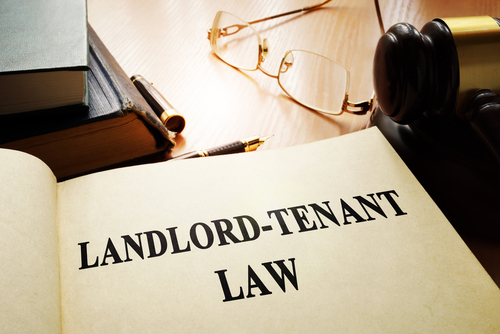Washington DC Tenant Laws for Repairs – As a tenant in Washington DC, it’s important to know your rights when it comes to repairs and maintenance in your rental property. Landlords are legally obligated to provide safe and habitable living conditions for their tenants, and failure to do so can result in serious consequences. But navigating the laws and regulations surrounding tenant rights can be overwhelming, especially if you’re not familiar with the legal jargon. That’s why Eastcoastlaws.com we’ve put together this comprehensive guide to help you understand your rights as a tenant in Washington DC and what to do if your landlord fails to meet their obligations.
From the basics of habitability to the process of requesting repairs and taking legal action, we’ve got you covered. So if you’re a tenant in DC, read on to learn how to protect your rights and ensure that your rental property is safe and comfortable.
Washington DC Tenant Rights
Tenant rights in Washington, D.C. are protected by the Tenant Bill of Rights. Here are some key points from the Tenant Bill of Rights:
- A written lease is not required to establish a tenancy.
- The landlord may not retaliate against you for exercising any right of tenancy.
- The landlord may not interfere with the right of tenants to organize a tenant association.
- Except for rent control, all these rights apply to every tenant in the District.
Tenants in Washington, D.C. have the right to withhold rent or exercise the right to “repair and deduct” if a landlord fails to take care of important repairs, such as a broken heater. The landlord may not terminate a tenancy without following the proper procedures. If tenants have questions about their rights, they can contact the Office of the Tenant Advocate
Washington DC landlord-tenant law
Washington D.C. has specific laws that govern the relationship between landlords and tenants. Here are some key points to keep in mind: Tenant Bill of Rights
- A written lease is not required to establish a tenancy.
- Certain lease clauses are prohibited, including waiver of landlord liability for failing to properly maintain the property.
- After the initial lease term expires, tenants have the right to continue their tenancy month-to-month indefinitely on the same terms, except for lawful rent increases.
- The landlord may not retaliate against tenants for exercising any right of tenancy.
Landlord and Tenant Law
- When a lease for any definite term expires, or any tenancy is terminated by notice, and the tenant fails or refuses to surrender the property, the landlord may file a lawsuit to evict the tenant.
- The landlord must give the tenant a chance to become current in rent before filing a lawsuit to evict the tenant.
- The landlord may not change the terms of the lease without the tenant’s agreement.
- The landlord may not retaliate against tenants for exercising any right of tenancy.
- There are specific security deposit requirements, and receipts are required for security deposit payments.
- There are limits on late fees, and they need to be written in the rental agreement4.
- There are rent payment grace period laws.
- There are notice of entry laws4.
- A rental license is required to be a landlord.
For more information, tenants and landlords can refer to the D.C. Tenant Bill of Rights and the D.C. Landlord and Tenant Law. The Office of the Tenant Advocate provides resources and assistance to tenants.
Tenant Rights Related To Repairs
As a tenant in Washington DC, you have the right to a rental property that is safe, sanitary, and habitable. This means that your landlord must ensure that your rental unit meets certain standards of maintenance and repair, such as providing working plumbing, heating, and electrical systems, as well as ensuring that the property is free from pest infestations and other health hazards.
Under DC law, landlords are required to make repairs within a reasonable amount of time after receiving notice of a problem. If your landlord fails to make necessary repairs, you may have the right to withhold rent or terminate your lease, depending on the severity of the issue.
Landlord Responsibilities For Repairs
Your landlord has a legal obligation to maintain your rental property and make necessary repairs to ensure that it remains habitable. This includes repairing or replacing broken appliances, fixing leaks or other plumbing issues, repairing or replacing broken heating or cooling systems, and ensuring that the property is free from pest infestations and other health hazards.
If your landlord fails to make necessary repairs, you have the right to file a complaint with the DC Department of Housing and Community Development (DHCD). The DHCD may order your landlord to make repairs or may take legal action against your landlord if they fail to comply with the order.
Types Of Repairs That Landlords Are Responsible For
Your landlord is responsible for making necessary repairs to ensure that your rental property remains habitable and safe. This includes repairs to plumbing, heating, and electrical systems, as well as repairs to appliances and other fixtures that are included in your rental unit.
Your landlord is also responsible for ensuring that the property is free from pest infestations and other health hazards. This includes treating infestations of bed bugs, roaches, and other pests, as well as repairing or removing any hazards that could pose a threat to your health or safety.
How To Request Repairs From Your Landlord
If you have a problem with your rental property that requires repairs, you should notify your landlord in writing as soon as possible. Your written notice should include a description of the problem and a request that your landlord makes necessary repairs within a reasonable amount of time.
Under DC law, your landlord is required to make repairs within a reasonable amount of time after receiving notice of a problem. If your landlord fails to make necessary repairs, you may have the right to withhold rent or terminate your lease, depending on the severity of the issue.
What To Do If Your Landlord Refuses To Make Repairs
If your landlord refuses to make necessary repairs to your rental property, you may have legal options available to you. You may be able to file a complaint with the DC Department of Housing and Community Development (DHCD) or take legal action against your landlord.
Before taking legal action, however, it’s important to document the problem and your landlord’s failure to make necessary repairs. This may include taking photographs or video footage of the problem, keeping a record of any communication with your landlord, and seeking the advice of a legal professional.
Can You Withhold Rent for Repairs
Washington D.C. tenant law does not directly grant tenants the right to withhold rent in response to habitability issues5. However, if a landlord fails to make necessary repairs, tenants may have the right to withhold rent or terminate their lease, depending on the severity of the issue. If the necessary repair is prohibitively expensive, tenants can also withhold rent until the landlord finally makes repairs. The tenant can lawfully withhold the entire sum of rent, which implies the tenant can also spend some of the withheld amount on necessary repairs. However, courts have not yet formed clear rules around this remedy. It is important to note that it is only legal for a tenant to withhold rent if a landlord has breached D.C.’s “warranty of habitability,” which typically means the landlord has violated one of the city’s many housing regulations
Legal Options Available To Tenants For Getting Repairs Done
If your landlord fails to make necessary repairs to your rental property, you may have legal options available to you. You may be able to file a complaint with the DC Department of Housing and Community Development (DHCD) or take legal action against your landlord.
Legal action may include filing a lawsuit against your landlord for breach of contract or negligence or seeking an injunction to force your landlord to make necessary repairs. It’s important to seek the advice of a legal professional before taking any legal action to ensure that you understand your rights and options.
Month-To-Month Lease D.C. Law
In Washington D.C., tenants have the right to continue their tenancy month-to-month indefinitely on the same terms, except for lawful rent increases, after the initial lease term expires. A written lease is not required to establish a tenancy. If a tenant wants to terminate a month-to-month lease, they must give the landlord written notice at least 30 days before the next rent payment is due. Washington D.C. tenant law does not directly grant tenants the right to withhold rent in response to habitability issues, but if a landlord fails to make necessary repairs, tenants may have the right to withhold rent or terminate their lease, depending on the severity of the issue. If the necessary repair is prohibitively expensive, tenants can also withhold rent until the landlord finally makes repairs. However, it is only legal for a tenant to withhold rent if a landlord has breached D.C.’s “warranty of habitability,” which typically means the landlord has violated one of the city’s many housing regulations
Resources Available To Tenants For Legal Assistance
If you’re a tenant in Washington DC and you need legal assistance, there are several resources available to you. The DC Bar Pro Bono Center provides free legal services to low-income residents of DC, including tenants who need help with housing issues.
In addition, the DC Office of the Tenant Advocate (OTA) provides legal assistance to tenants in DC, including information on tenant rights and resources for legal representation. The OTA can be reached at (202) 719-6560.
Frequently Asked Questions About Washington DC Tenant Laws For Repairs
Q: What types of repairs is my landlord responsible for making?
A: Your landlord is responsible for making necessary repairs to ensure that your rental property remains habitable and safe. This includes repairs to plumbing, heating, and electrical systems, as well as repairs to appliances and other fixtures that are included in your rental unit.
Q: What should I do if my landlord refuses to make necessary repairs?
A: If your landlord refuses to make necessary repairs, you may have legal options available to you. You may be able to file a complaint with the DC Department of Housing and Community Development (DHCD) or take legal action against your landlord.
Q: Can I withhold rent if my landlord fails to make necessary repairs?
A: You may have the right to withhold rent if your landlord fails to make necessary repairs, depending on the severity of the issue. However, it’s important to seek the advice of a legal professional before taking any action to ensure that you understand your rights and options.
Conclusion
As a tenant in Washington DC, it’s important to understand your rights when it comes to repairs and maintenance in your rental property. Your landlord is legally obligated to provide safe and habitable living conditions for you, and failure to do so can result in serious consequences.
If you have a problem with your rental property that requires repairs, you should notify your landlord in writing as soon as possible. If your landlord fails to make necessary repairs, you may have legal options available to you, including filing a complaint with the DC Department of Housing and Community Development (DHCD) or taking legal action against your landlord.
Remember, as a tenant, you have the right to a safe and habitable living environment, and it’s important to understand your rights and take action if your landlord fails to meet their obligations.





